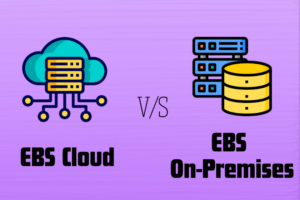Tired of manual scanning that is tedious and plagued by errors? Today, most of the warehouses feel the same pinch about usage of manual methods leading to poor inventory management, lost revenue, and above all dealing with disgruntled workforces. Hence, most of the organizations are turning to automation at all levels including warehouse and inventory for enhanced accuracy, efficiency and above all a productive workforce. In the realm of automation, one technology that is gaining a lot of attention is scanning – whether barcode, RF or a combination of both.
While each type of scanning comes with its own share of benefits, however, RF (Radio Frequency) scanning scores high in ensuring high levels of inventory accuracy and facilitating fool-proof inventory operations. In this blog, let us explore the significance of RF barcode scanning and how a Mobile RF barcode scanning solution can help optimize and increase the efficiency of the warehouse personnel. Furthermore, we will also throw light on some of the key parameters that are required to choose the right mobile RF scanning solution.

Overview:
What is RF Scanning?
RF scanning is a technology used in warehouse and inventory management that utilizes radio waves to capture data from RFID tags attached to items. This technology significantly improves the accuracy and efficiency of goods tracking, facilitating real-time inventory visibility and minimizing human errors. In other words, RF scanning provides the ability to automate data collection, ensuring precise inventory management and facilitating better decision-making within supply chain operations.
The increasing use of mobile RF barcode scanners by warehouse and shipping staff is a significant aspect of modern logistics processes, including shipping, receiving, loading, and returns. However, with the evolution of smartphones, physical barcode scanners are not the only option for supply chain professionals.
Significance of RF Scanners
RF scanners are vital in contemporary warehouses for optimizing operations and improving precision. These scanners automate task assignments to ensure efficient workflows, while optimizing the inventory operations.
Some of the typical benefits of RF scanners include optimized efficiency, improved accuracy, real-time inventory tracking, improved productivity, streamlined operations and enhanced traceability. These benefits go a long way in reducing the operational costs, while improving the overall customer satisfaction.
However, handheld RF scanners though offer significant benefits may not always be the preferred choice across warehouses due to several reasons. Let’s delve on this aspect in the next section.
Limitations of Handheld RF Scanners over Mobile RF Scanners
Typically, mobile and handheld RF scanners offer the advantage of easy portability throughout the facility. However, when compared to mobile, handheld devices are heavy and bulky, making them difficult to carry. Apart from that, they suffer from few limitations unlike mobile devices that are light, flexible and offers couple of advantages. This mobility and flexibility make mobile devices more favorable compared to bulky, expensive scanners that require frequent maintenance.
Few Limitations of Handheld RF Scanners
1. Limited Range
These Handheld RF scanners offer limited range, often requiring the user to be within a close distance of the scanned item. Moreover, mobility is constrained by the need to manually move to each item, which can be time-consuming and physically demanding, especially in large warehouses.
2. Slower Scanning Process
Scanning inventory through handheld devices is slower, compared to a mobile RF scanner, leading to slower inventory updates and order processing.
3. Poor Ergonomics and Worker Fatigue
Handheld RF scanners can cause worker fatigue due to the repetitive motion of picking up, pointing, and scanning items. With poor design, it leads to potential strain or injuries over time.
4. Greater Chance of Inaccuracies
With a handheld scanner, there is a higher likelihood of human errors such as missed scans or incorrect entries. This means, data may not be as up-to-date due to the manual nature of the process.
5. Lack of Operational Flexibility
Handheld devices offer limited flexibility in terms of ERP integration and integration with other third party, warehouse automation systems.
6. High-Cost Considerations
Though handheld RF scanners may incur lower initial costs, they may however incur long-term labor costs. Added to that are potential hidden costs related to ergonomic issues and worker fatigue.
7. Limited Suitability
Due to the nature of its functionality, a handheld RF scanner is more suitable for smaller warehouses, but not suitable for large warehouses involving complex inventory operations.
From the above discussion, it is evident that a conventional, handheld RF barcode scanner suffers from few limitations and hence an alternative scanning solution that is affordable and efficient is the mobile barcode scanning app. Typically, a mobile warehouse management solution (WMS) that leverages the power of RF and barcode scanning capabilities of a mobile device is an ideal choice for warehouse personnel. Such a solution should seamlessly integrate with an organization’s in-house, centralized ERP system like SAP or Oracle, so the inventory data that is captured through a mobile is instantly available across all devices and easily accessible to all its stakeholders (frontline and back-office executives).
Having appreciated the importance of mobile RF scanning solution in a warehouse setup, let’s now understand the top 7 benefits of a mobile RF barcode scanning solution:
Top 7 Seven Benefits of Mobile RF Barcode Scanning App
Implementing a mobile RF barcode scanning app in a warehouse environment offers numerous benefits that significantly enhances operational efficiency, accuracy, and productivity. Here are the top seven benefits:
1. Improved Inventory Accuracy
A mobile RF barcode scanning app reduces manual data entry errors by scanning barcodes directly, ensuring accurate inventory counts. This results in instant data transmission to an in-house ERP system (Oracle or SAP), ensuring up-to-data inventory records.
2. Easy to Carry
In contrast to a bulky handheld scanner, a mobile device that hosts the RF barcode scanning solution offers greater flexibility, particularly when moving from one location to another within a warehouse for quickly scanning the items. Given their lightweight nature and the current generation’s proficiency with smartphones, mobile devices are the best and most preferred choice for use in warehouses.
3. Improved Order Accuracy
A mobile barcode solution scans barcodes ensuring that the correct items are picked and shipped, reducing the likelihood of order fulfillment errors. In other words, a mobile barcode scanner verifies the items against an order, minimizing mistakes, thereby enhancing customer satisfaction.
4. Better Inventory Management
A mobile barcode scanner enables regular cycle counting, which assists in maintaining accurate inventory levels and reduces the necessity for complete physical inventory counts. This ensures enhanced visibility into stock levels, enabling better demand planning and inventory replenishment.
5. Enhanced Traceability and Accountability
A mobile barcode scanning solution facilitates end-to-end traceability – barcodes provide a trail of inventory management within the warehouse, improving traceability from receipt to shipment.
6. Cost Savings
A mobile RF scanning solution reduces labor costs, since automation of inventory processes minimizes the need for manual labor, lowering operational costs. Apart from that, accurate tracking reduces the likelihood of lost or misplaced inventory, saving money on replacement costs. However, the most pertinent cost benefit is the elimination of significant hardware investments, since the majority of the workforce already owns smartphones.
7. Improved Data Collection and Analysis
Due to automated data capture by a mobile RF scanning solution, information is accurate and reliable, providing better insights into warehouse operations. These insights assist senior management in enhancing performance monitoring and fostering ongoing improvement.
5 Key Parameters to Consider before Choosing a Mobile RF Barcode Scanning Solution
1. Right Hardware
VDC research reveals that non-rugged devices have a five-fold higher failure rate than rugged devices, which have a longer life cycle and can withstand harsh conditions in warehouses and distribution centers. Device failures cost 30-40 minutes of worker downtime, making ruggedized devices essential for enterprises.
2. Seamless Integration between Hardware & Software
Sometimes the best hardware is useless if it cannot run the required applications. In the same way, the best mobile app becomes redundant if it cannot support the hardware that it runs. So, ensure that there is a seamless integration among hardware devices, mobile applications, and your ERP.
3. Barcode Readability
Occasionally, workers have to perform duties in low light conditions, scan damaged codes or blurred codes. Enterprises planning to implement barcode scanning solutions must select a solution that meets these scenarios.
4. Decode Speed
In a high throughput scanning environment, low latencies in scanning are essential to perform tasks successfully and provide an efficient user experience for workers. Some factors influencing the decoding speed are device CPU, camera initialization speed and app decoding approach. Before making the final purchase, test the mobile solution in different scanning settings.
5. Offline Support
This is a significant parameter from a user’s perspective. Since few warehouses may be located remotely with limited or zero internet connectivity, a mobile RF scanning solution should support both online and offline connectivity. Hence, look for a solution that offers this feature ensuring that your warehouse personnel can process transactions 24/7 irrespective of whether they are offline or online without losing the vital information.
Explore Propel Apps’ Mobile RF Barcode Scanning Solution
Propel Apps, a leading digital transformation company has developed a mobile WMS solution that leverages the power of barcode and RF scanning capabilities to power your warehouse operations to the next level. By seamlessly integrating with your in-house ERP systems like Oracle and SAP, this solution enables your warehouse personnel to maintain the data, automate the inventory management and sync data to your centralized ERP system. This means your up-to-date barcode inventory data is immediately available to your desktop and mobile users, enabling faster decision-making.
How Propel Apps’ mobile RF Barcode Scanning Solution Can Benefit your Warehouse
By leveraging the Propel Apps’ Mobile RF Barcode Scanning solution, your warehouse personnel can enjoy the following benefits:
- Run operations in autopilot mode
- Ensure 24×7 manufacturing and supply chain operations
- Optimize productivity with offline-first architecture
- Ensure 100% inventory accuracy – reduce errors, validate barcodes, and post transactions using Oracle EBS, Cloud, and SAP S/4 HANA.
- Lower your operating costs by lowering your hardware, IT support, and business support costs.
- Ensure real-time visibility – easily track raw materials and product movement from procurement to manufacturing
- And much more…..
Final Thoughts
Warehouse workers in challenging conditions can greatly benefit from an Oracle or an SAP mobile inventory management solution with barcode scanning functionality. This solution can save time on manual tasks like cycle counting, time tracking, and inventory receipt, thereby improving business efficiency. A good barcode scanning app can automate and streamline inventory processes, saving money on labor costs and enhancing the maturity of the supply chain. Request a demo to know how a Propel Apps’ Mobile SCM solution can boost your business operations.




